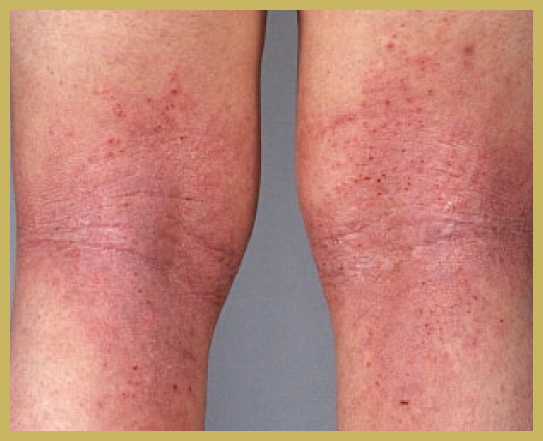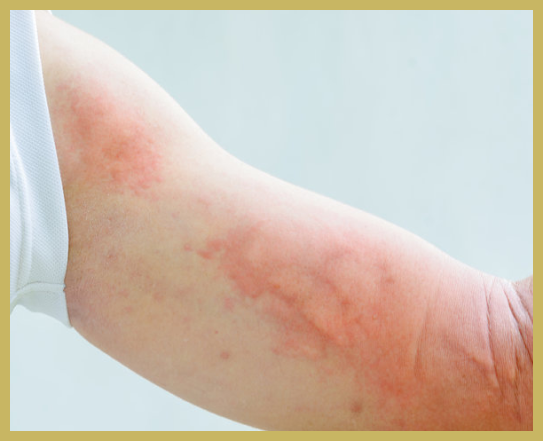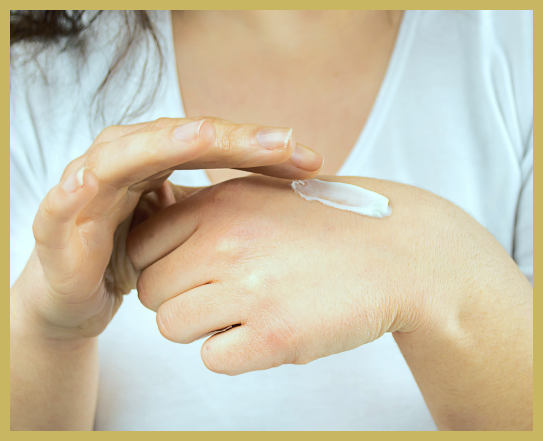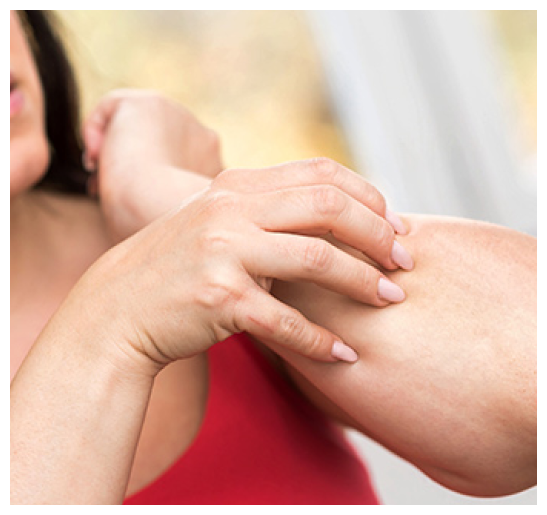Common Skin Conditions
Struggling with Red, Itchy, or Blistered Skin? Discover Advanced Skin Treatment in Karachi
Personalized Care for Skin Rashes, Swelling, Blisters & Itchy Skin at Dr. Khilji Faisal's Skin Clinic, Zamzama
Skin irritation—whether it’s redness, swelling, blisters, dryness, or itchy rashes— can interfere with your daily comfort and confidence. These symptoms might indicate underlying dermatological conditions such as eczema, dermatitis, allergies, or infections. Fortunately, with expert intervention and a tailored treatment approach, you can restore your skin’s health and radiance.
At Dr. Khilji Faisal Arif’s Skin Clinic in Karachi, we specialize in accurately diagnosing and treating skin conditions with a combination of clinical expertise, modern equipment, and patient-focused care.
What Causes Common Skin Conditions?
Skin reactions like inflammation, blisters, or persistent itching are often the
body’s way of responding to:
- Allergies: Reactions to certain foods, skincare products, or fabrics.
- Infections: Bacterial, viral, or fungal infections that cause visible symptoms like redness, rashes, or swelling.
- Chronic Conditions: Conditions such as eczema, psoriasis, or dermatitis that flare up periodically.
- Environmental Factors: Karachi’s hot climate, pollution, or harsh water can trigger or worsen skin sensitivity.

Medical Dermatology


Recognizing the Symptoms of Skin Conditions
Do you experience any of these symptoms? If so, it may be time to consult a dermatologist in Karachi:
- Swollen Skin: Inflammation caused by infection or allergic reaction.
- Persistent Redness: Often linked to rosacea, eczema, or environmental irritation.
- Dry, Scaly, or Chapped Skin: A sign of poor hydration or chronic dermatitis.
- Blisters or Fluid-Filled Bumps: Usually caused by friction, burns, or autoimmune responses.
- Itching and rashes could indicate contact dermatitis, allergies, or heat rash.
Each symptom tells a story about your skin’s condition, and a proper diagnosis is the first step toward healing.
Treatment Options for Skin Rashes, Swelling & Blisters
Topical & Clinical Dermatology Treatments
(prescribed post consultation)
- Moisturizing Therapies: Especially effective for dry, cracked skin and eczema.
Cool Compress Applications: Recommended for reducing swelling and
soothing inflammation.
Patch Testing: To identify allergic reactions or sensitivities to skincare
ingredients.
- Phototherapy: A targeted light-based treatment for conditions like psoriasis or eczema.
All treatments are tailored to your skin’s response and lab results. No
medication is prescribed without a proper diagnosis.
Preventive Care & Skin Health Maintenance
You can reduce flare-ups and prevent skin discomfort with the right lifestyle changes and skincare habits:
- Use fragrance–free, hypoallergenic skincare products.
- Wear sunscreen daily to protect sensitive skin from Karachi’s harsh UV rays.
- Stay hydrated and consume skin-supporting nutrients, such as omega–3 fatty acids and Vitamin E.
- Avoid known allergens or triggers after consulting with healthcare professional and undergoing allergy testing.

Why Choose Dr. Khilji Faisal Arif for Skin Condition Treatment in Karachi?
With years of expertise in treating complex dermatological conditions, Dr.
Khilji Faisal Arif is one of the most trusted skin specialists in Karachi. Located in Zamzama, DHA Phase V, his clinic offers:
- Accurate skin evaluations
- Personalized treatment plans
- Patient comfort and safety
- Advanced technologies for lasting skin health
What causes sudden skin swelling or blisters?
Allergies, infections, or autoimmune conditions can lead to these symptoms. A dermatologist consultation is necessary for an accurate diagnosis.
Can dry, itchy skin be cured permanently?
While chronic conditions like eczema can’t be cured, they can be managed long-term with dermatological care.
Is redness always a sign of rosacea?
Not always. Redness could also indicate contact dermatitis, allergic reaction, or sun damage. A dermatologist can determine the cause.

Prevention Tips
Topical Treatments
- Use Gentle Skincare Products: Opt for fragrance-free and hypoallergenic products to minimize irritation.
- Protect Your Skin: Wear protective clothing and sunscreen to shield your skin from harmful UV rays.
- Maintain a Healthy Environment: Use humidifiers to keep the air moist, especially during dry seasons, to prevent your skin from drying out.
Conclusion:
Managing skin conditions like swelling, redness, dry/scaly skin, and blisters requires a combination of treatments and lifestyle adjustments. Anti-itch creams and moisturizing lotions can provide immediate relief, while advanced treatments like Dupilumab and phototherapy offer long-term solutions. However, it’s important to note that these treatments should be used under the guidance of a dermatologist. A dermatologist is a medical professional who specializes in diagnosing and treating skin conditions. By following these guidelines and consulting with a dermatologist, you can effectively control and heal common skin issues.
Incorporating these strategies alleviates discomfort and promotes healthier, more resilient skin. However, seeking professional medical advice is not just important for more severe or persistent symptoms. It’s crucial. It ensures you receive the most appropriate treatment and care, providing the support and guidance you need on your skin health journey.


Get Relief from Skin Discomfort — Book Your Consultation Today
Don’t let rashes, itchiness, or swelling affect your daily life. Whether your condition is mild or persistent, The Skin Clinic by Dr. Khilji Faisal Arif offers the best skin treatment in Karachi with a commitment to personalized care and long-term relief.
